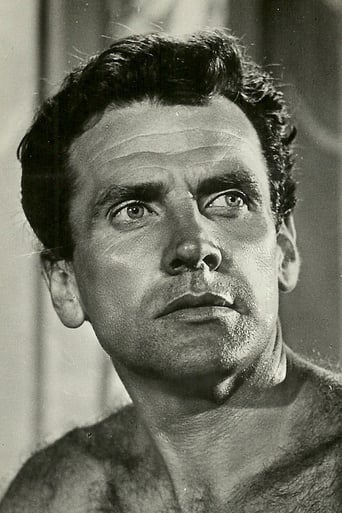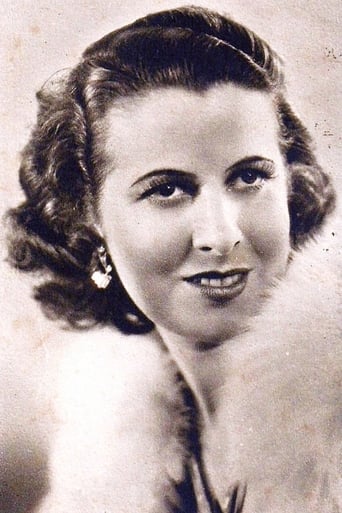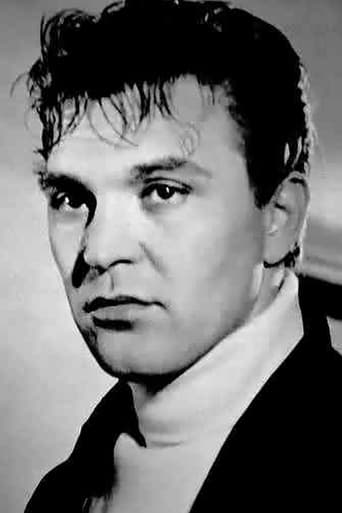JohnHowardReid
To date, there are 13 reviews of this film. Perhaps all the writers saw this movie theatrically. I have the Bo-ying version of USA'a NoShame DVD, and, to say the least, it certainly ranks as the most extraordinary DVD I've ever seen in my life! Presumably, as the original negative was destroyed in a fire in 1989, this DVD has been reconstructed from bits and pieces of the original Italian version and the dubbed English-language version, and then re-sub-titled. A huge effort has been made to make the LOOK of the film consistent -- even when the version used changes -- which it OFTEN does -- right in the middle of a scene! And would you believe that -- with this direct comparison facing us every couple of minutes -- the English-language version is actually superior to the original Italian. The acting is superior and even the syncing is better. (As most of you know, all Italian films are post-dubbed -- and not necessarily by the original actors). But that's not the end of the matter. The sub-titles we see with our eyes often don't fully agree with what we hear with our ears. In at least two cases, the sub-titles (presumably based on the Italian version) are the exact opposite to what we actually hear! And many of the titles also carry extra (rather than less) information. As for the movie itself, I loved it! Beautifully photographed, exquisitely acted, and most engagingly directed. Until now, I was not an Antonioni fan. But anyone who loves streetcars is a friend forever. And there are more streetcars in "Story of a Love Affair" than in any other movie I can think of, except Bunuel's wonderful 1953 homage, "Illusion Travels by Streetcar".
bobsgrock
The feature film debut of future Italian cinema star Michelangelo Antonioni is quite conventional and straightforward as compared to his later works, which are generally regarded as masterpieces. Though not in that category, this film ranks as a very well-made melodrama that dares to also include exploration of the darkest of human desires, specifically within the context of marriage and fidelity. Chance also plays a large role here, helping to reunite former lovers who pick up where they left off, ironically thanks to the woman's husband hiring a private detective to follow her as he suspects she is having an affair. What follows is often high-strung, dense and very moving as Antonioni shows us the most desolate shots of the beautiful city Milan. Many of the establishing shots are long shots of corridors, streets and other walkways that create great sense of alienation, isolation and illicit activities. The ending may require a bit of explaining but still fits the overall tone of elegy and bitter sadness. A powerful and moving Italian melodrama that certainly could be used as a template for American filmmakers today.
sol-
I suppose the single most interesting aspect of this film is shifts in perspective. At first, we are introduced to a detective who spends some time investigating the past of a woman at a concerned husband's request. The husband is worried that she might be cheating on him, as some photographs that he discovers reveal her to have quite a lively past. With all the inquiries being made, there is eventually a leak about the investigation, which the woman finds out about from a friend. From then onwards the perspective changes from having the detective as the main character to having her as the main character. While this switch is interesting, I'm not quite sure if I understand Antonioni's motivation behind it.The story carries on, and the basic plot is not full of excitement, nor is it complex. It appears that the woman and a former lover were involved in a murder plot some time ago, and the woman is concerned that the police are after her. She calls up the old lover, and this is where one of the film's two great ironies is present. Until the investigation began, she was not having an affair or anything like that behind her husband's back, but now that she is re-united with her old lover, a love affair starts to develop again between them.The story continues on after this, and there are many small (perhaps unnecessary) subplots thrown in, such as a party of some sort at which the woman randomly buys a dress, and some other blonde woman that her lover might also be having an affair with? Most of the supporting characters present in this period of the film are hardly at all developed, and it is in fact hard to judge whether this section of the film could have just been condensed to five minutes. Either way, it eventually comes to point at which the woman and her lover decide that they definitely want to be together, and they plot to dispose of her husband in a road accident. Ironically though, he gets killed on the road the very night they plan it on his own accord.Some of the themes running through the film are interesting. The murder plot that they were involved in during the past is never explored in much detail, but we come to understand that they wanted to dispose of a woman who was getting in the way of the two of them having a relationship together. Another, albeit minor, irony here is that killing her drove them apart. Once again at the end they are driven apart, just by the intention of wanting to kill her husband, even though they never went through with it.In terms of Antonioni's screenplay, there is definitely enough going on to make it engaging plotwise. However, I find it hard to construct even one sentence to describe each of his characters. The way the detective is often seen alone, or from behind with others in front, constructs him as a loner. But that's all that we are told. Other characters speak of the husband's jealousy, but he never seems more than curious. The wife and her lover fit the model of two doomed lovers, with the typical dread and paranoia attached, but not much individual personality. It was hard for me to connect with the film, because the characters came off too cold for me to connect with, and the dialogue between them left quite a bit to be desired.The one thing that really annoyed me about the film though was Antonioni's soundtrack. More than half the scenes were filmed with noticeably noisy backgrounds, and in some cases --- the boy hitting the ball against the wall; birds chirping while talking on the telephone --- these sounds felt forced into the film. I suppose Antonioni was trying to say something with his use of sound, but what? And the noisy backgrounds aren't constant throughout either. It is very strange, and not really a positive thing as far as I can see. Also the variety of jazz music played over the action was overbearing, taking over the dialogue at certain points. Generally though, the music helped to set the mood well.To leave off with a positive comment, Antonioni does quite a good job adapting film noir techniques to his project. The lengthy shadows, contrasts between soft and hard lighting etc, really give a 1940s American film noir feel. The black and white photography captures the film quite well, with panning, zooming etc., without disturbing the flow of the narrative. And there's one very interesting shot in which the type of lighting used makes a river/lake appear purely white, even though shot against a grey sky. The visual side is interesting.Overall, there is a lot of interest going on this film, however there are at least a couple of factors that were detractors for me: the coldness with which all the characters are handled, and the lack of ease watching it, due to the odd soundtrack. It is indeed not an easy film to watch - but certainly, an interesting one.




